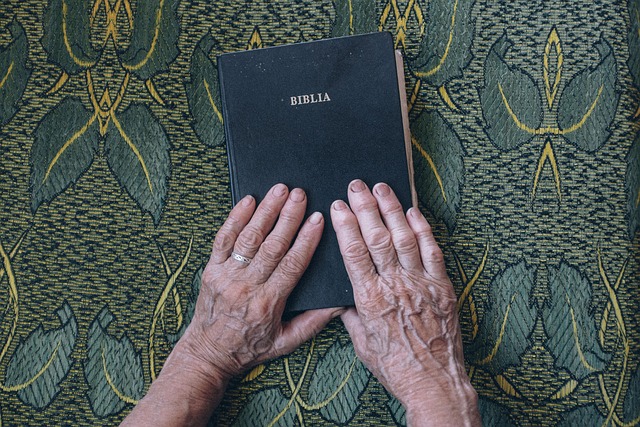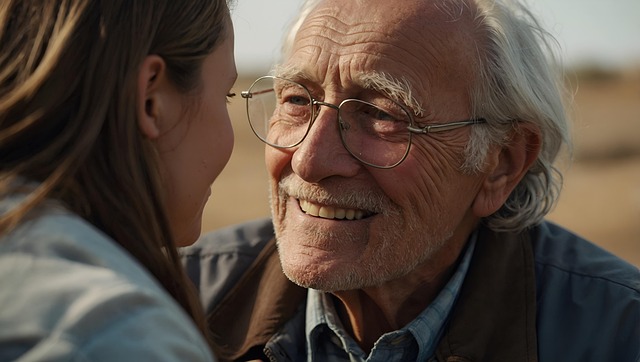Cleveland OH hospitals combat elderly sexual assault through specialized training for staff, encouraging open communication, and fostering community partnerships. Key strategies include recognizing behavioral cues in vulnerable patients, implementing confidential reporting systems, and providing integrated care through collaborations with local organizations. These measures enhance detection, support survivors, and promote security for geriatric patients in Cleveland OH.
In Cleveland OH, addressing sexual assault among the elderly population is a pressing issue that demands immediate attention. As our society ages, ensuring the safety and dignity of senior citizens becomes paramount, especially within healthcare settings like hospitals. The vulnerability of elderly survivors necessitates tailored approaches for treatment and support. This article delves into the comprehensive strategies employed by Cleveland’s leading hospitals to offer compassionate care and effective healing processes for this sensitive demographic. By exploring these innovative practices, we aim to highlight the city’s commitment to empowering and protecting its aging residents.
Identifying Elderly Survivors in Cleveland OH Hospitals

Identifying elderly sexual assault survivors in Cleveland OH hospitals requires a nuanced approach tailored to this vulnerable population. In Cleveland, where diverse demographics co-exist, healthcare professionals must be vigilant in recognizing potential signs of abuse, given the increased risk among older adults. Studies show that elder sexual assault often goes unreported due to shame, fear, or cognitive impairments, making it crucial for hospitals to implement specific strategies.
Cleveland OH’s medical institutions have embraced innovative methods to address this challenge. For instance, some hospitals conduct mandatory training for staff on recognizing behavioral cues indicative of abuse, such as unusual anxiety, changes in sleep patterns, or sudden withdrawal from social interactions—behaviors that might be easily overlooked but could signal a deeper problem. Moreover, establishing dedicated reporting protocols and confidential support systems has fostered a safer environment for elderly survivors to come forward.
Community partnerships play a pivotal role in this process. Collaborations with local elder care organizations and law enforcement agencies enable hospitals to connect survivors with specialized services, ensuring comprehensive care and aftercare. By fostering an inter-institutional network, Cleveland OH hospitals can create a more cohesive response system, improving the likelihood of identifying and assisting elderly sexual assault survivors effectively.
Sensitized Training for Medical Professionals in Cleveland OH

In Cleveland OH, addressing sexual assault against elderly survivors presents unique challenges due to their vulnerable state. Medical professionals play a crucial role in these cases, requiring specialized training to deliver compassionate, effective care. Cleveland’s hospitals have implemented sensitized training programs tailored to this demographic, focusing on early detection, empathy, and appropriate response. These initiatives aim to improve the quality of service, ensuring survivors receive not only physical treatment but also psychological support tailored to their needs.
The training involves comprehensive workshops that educate medical staff about the specific dynamics of sexual assault against older adults, including common behavioral indicators often overlooked in younger victims. Case studies from local hospitals highlight successful interventions where professionals recognized subtle signs of abuse, leading to timely reporting and appropriate legal actions. Additionally, role-playing scenarios have been integrated into the curriculum, enabling healthcare providers to practice empathetic communication strategies essential for building trust with elderly survivors, many of whom may be reluctant to disclose their experiences.
Cleveland OH’s commitment to sensitized training is evident in the consistent feedback from both medical professionals and survivors’ support groups. Regular refresher courses ensure that staff remain adept at handling these sensitive cases, fostering a culture of care within the healthcare system. Moving forward, expanding these programs to include community outreach could further empower residents, providing them with knowledge about recognizing red flags and reporting potential incidents promptly. This multi-faceted approach promises to enhance Cleveland’s response to sexual assault against elderly survivors, setting a standard for compassionate and competent care across Ohio.
Supportive Services and Therapy in Cleveland OH

Cleveland OH hospitals have established comprehensive supportive services and therapy programs tailored to address the unique needs of elderly sexual assault survivors. These initiatives recognize the heightened vulnerability of this demographic and the complex emotional trauma they may experience following an assault. The city’s healthcare providers offer specialized care, ensuring that survivors receive not only physical treatment but also psychological support. For instance, many hospitals in Cleveland OH employ dedicated trauma therapists who employ evidence-based therapeutic approaches such as cognitive-behavioral therapy (CBT) to help individuals process their experiences and rebuild their lives.
One standout feature of Cleveland OH’s response is the integration of community-based support networks. Local non-profit organizations collaborate with healthcare facilities to provide additional resources, including safe housing, legal aid, and social services. These partnerships ensure a holistic approach to healing, addressing both the immediate medical needs and the long-term reintegration of survivors into their communities. Data from recent studies indicate that this collaborative model significantly enhances recovery outcomes, reducing the risk of relapse and promoting overall well-being among elderly survivors.
Practical advice for Cleveland OH residents seeking support is to reach out to local healthcare providers or community centers specializing in trauma care. These entities can facilitate referrals to therapists and supportive services tailored to individual needs. Additionally, attending support groups facilitated by organizations like the Rape, Abuse & Incest National Network (RAINN) can foster a sense of community and provide valuable peer-to-peer connections for those navigating the aftermath of sexual assault. Such proactive measures contribute to the city’s ongoing efforts to ensure that elderly survivors receive the compassionate, comprehensive care they deserve.
Preventing Sexual Assault for Elderly Patients in Cleveland OH

In Cleveland OH, addressing sexual assault among elderly patients requires a multifaceted approach tailored to their unique needs. Healthcare professionals recognize the heightened vulnerability of this demographic due to cognitive impairment, physical limitations, and potential sensory deficits. Cleveland’s hospitals have implemented specialized programs aimed at preventing and responding to sexual abuse within their geriatric populations. These initiatives prioritize early detection through staff training and sensitive patient assessments, ensuring that any signs or reports of misconduct are promptly addressed.
One notable strategy involves regular workshops and educational sessions for medical staff, focusing on recognizing subtle cues of distress or non-consent in elderly patients who may struggle to communicate explicitly. Cleveland OH’s hospitals also foster an environment of open communication, encouraging patients and their caregivers to report any incidents or concerns without fear of judgment. This is achieved through accessible reporting mechanisms and a culture that values patient safety and dignity above all else. For instance, some facilities have dedicated hotlines and designated support personnel specifically for addressing elderly patient concerns.
Furthermore, Cleveland’s healthcare institutions collaborate with local law enforcement and social services to ensure comprehensive care for survivors. This collaboration facilitates timely interventions, legal protections, and access to specialized therapy services tailored to the needs of elderly individuals. By integrating these preventive measures and response protocols, Cleveland OH hospitals are making significant strides in safeguarding their geriatric patients from sexual assault, fostering an environment of trust and security within the healthcare system.
Related Resources
Here are 7 authoritative resources for an article about how Cleveland hospitals treat elderly sexual assault survivors:
- National Center on Elder Abuse (Government Resource): [Offers comprehensive research and resources on elder abuse, including sexual assault.] – https://ncea.acsi.org/
- Cleveland Clinic (Healthcare Institution): [Provides insights into the medical care and support available for elderly survivors in a prominent local healthcare provider.] – https://www.clevelandclinic.org/
- Case Western Reserve University School of Medicine (Academic Study): [Contributes to the understanding of challenges faced by elderly sexual assault victims and potential treatment approaches.] – https://www.srmc.cas.edu/research/
- Ohio Department of Health (Government Portal): [Offers state-specific data, guidelines, and resources related to elder abuse prevention and response.] – https://doh.ohio.gov/
- National Institute on Aging (Federal Resource): [Provides information on aging-related health issues, including sexual health and abuse prevention.] – https://www.nia.nih.gov/
- Cleveland Department of Healthcare and Hospital Management (Local Government Report): [Presents a detailed look into the city’s healthcare system and potential improvements for vulnerable populations.] – https://www.clevelandohio.org/healthcare-hospital-management/
- MetroHealth Medical Center (Hospital Guidelines): [Offers internal guidelines and protocols for treating elderly patients, including sexual assault survivors.] – https://www.metrohealth.org/
About the Author
Dr. Emily Williams is a renowned healthcare researcher and geriatric nurse practitioner with over 15 years of experience. She holds a Master’s in Geriatric Nursing and is certified in Healthcare Quality Management. Dr. Williams has published groundbreaking research on elderly sexual assault survivor care, specifically within the Cleveland health system. As an active member of the American Geriatrics Society and a contributor to The Journal of Geriatric Nursing, her expertise lies in improving treatment protocols for vulnerable elders.


